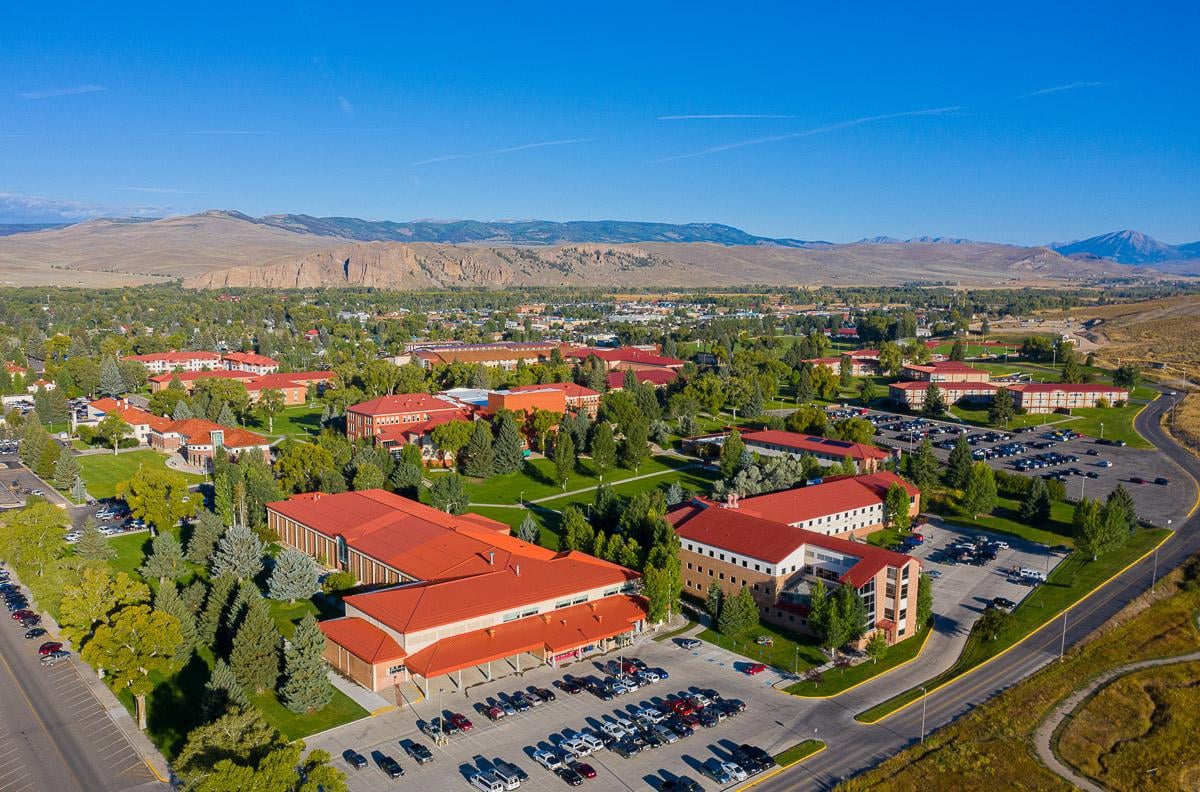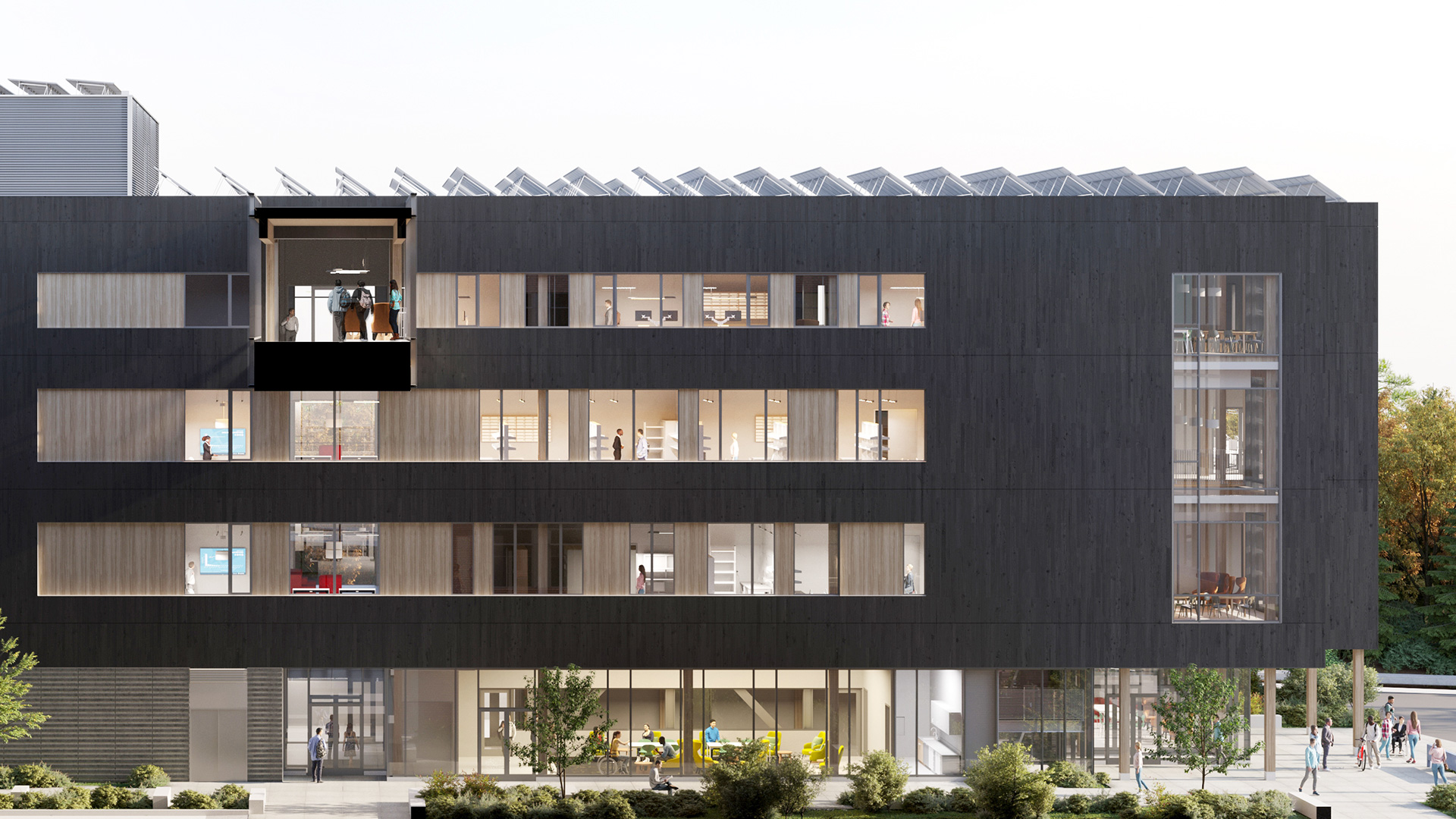Western Colorado University Deepens Sustainability Commitment With Lighting Overhaul
Surrounded by snowcapped mountains and millions of acres of scenic public land and waterways, Western Colorado University (WCU) is the Gunnison Valley’s premier public university, offering students dozens of unique experiential learning opportunities, including mountain sports programs, environmental stewardship curriculum and robust community engagement. WCU is home to 2,900 students and demonstrates a long history of sustainability leadership. Since 2007, WCU has been committed to implementing campus-wide sustainability initiatives that engage students, staff and the community. 2007 was the catalytic year for environmentalism with a university-wide transition to sustainability as a strategic focus marking the inception of the President’s Climate Commitment Action Plan. Soon after, 2010 became the “Year of Sustainability” on campus, and organized efforts were made to include campus landscape, education, energy, food and material flow. Additionally, the first iteration of the Sustainability Blueprint (2011-2021) was developed, cataloging these efforts as well as recommendations for continued improvement over the next 10 years.
Guided by the President’s Climate Commitment Action Plan as well as a Sustainability Commitment, Environmental Charter and Zero Waste Goals, WCU has implemented several sustainability efforts over the years. In 2019, WCU voted to use renewable energy funds for a collaborative solar photovoltaic (PV) system at Gunnison Airport. The unique partnership between the City of Gunnison, Gunnison County and WCU demonstrates the community’s collective dedication to sustainability while ensuring a third of the airport’s solar PV system generated power (900,000 kW) will be deferred to WCU. Other sustainability efforts include the development of a Sustainability Action Committee, a free bike library, a robust on-campus composting program, single stream recycling program as well as the opening of the Coldharbour Institute for regenerative living practices and the Center for Public Lands for land management facilitation. In the spirit of WCU’s continued commitment to sustainability, when students approached President Baca in 2020 to improve campus safety through exterior lighting, WCU leadership chose to implement a solution that addressed more than safety alone but tackled energy efficiency too.
WCU leadership chose to partner with McKinstry on a $1.59M campus-wide exterior lighting project that was completed in late 2023. WCU selected McKinstry as its lighting efficiency project partner based on its higher education market experience across the country and its commitment to guaranteeing results and savings. The project was funded by Colorado’s State Buildings program. The program establishes best practices for procurement, construction, design and controlled maintenance for all the state’s public higher education institutions.
For many small communities like the City of Gunnison, the heart of the community resides in the local infrastructure, from community centers and recreational spaces to university campuses. By prioritizing the revitalization of these impactful spaces through energy efficiency projects like improved exterior lighting, universities not only build resiliency and ensure longevity, but their investment also demonstrates community stewardship and a dedication to preserving well-loved student spaces for years to come.
With a rich history of agriculture and outdoor recreation, the City of Gunnison is an example of the Colorado spirit, and so, too, is Western Colorado University. Pursuing a zero-carbon future and implementing a statewide transition to clean energy are integral to preserving Colorado’s way of life. Climate change could impact Colorado in significant ways, including increased devastation from wildfires, greater likelihood of drought and flood, loss of high alpine ecosystems and negative impacts on tourist economies, including the ski and recreational industries.
In May 2019, Governor Jared Polis enacted a roadmap to 100% Renewable Energy by 2040. WCU stands firmly in support of the state’s effort and remains a steadfast partner of the City of Gunnison as they commit to their own sustainability initiatives. One such initiative is the pursuit of Dark-Sky compliance with the International Dark-Sky Association, a global effort to reduce light pollution from outdoor lighting. The city’s Dark-Sky efforts were a major consideration for WCU leadership as they pursued and completed its exterior lighting overhaul, including the replacement of 240 poles with fixtures across the campus.
Keeping in mind the safety concerns of students, WCU developed a comprehensive lighting and pole numbering system to allow students to quickly and easily identify their position on campus in the case of an emergency. In addition to improved energy use, the completion of the project offers a multitude of environmental benefits, including the diversion of lighting fixtures from landfills with fewer replacements and longer life cycles and over 292,000 kWh savings annually, reducing WCU’s emissions by 205 Metric Tons of Carbon Dioxide Equivalents (MTCDE), or 2.20%. Typically, older lighting fixtures are safely recycled upon replacement; however, aligning with WCU’s community engagement efforts, old campus fixtures were donated to local farmers for onsite farming and lighting uses, giving them a purposeful second life.
McKinstry is proud to partner with Western Colorado University, an exemplar of environmental stewardship and sustainability education. The University plans to continue its sustainability efforts with the development of a Climate Action Plan.

Gunnison, CO

Higher Education

Lighting
Design-Build

205 Metric Tons Annually

